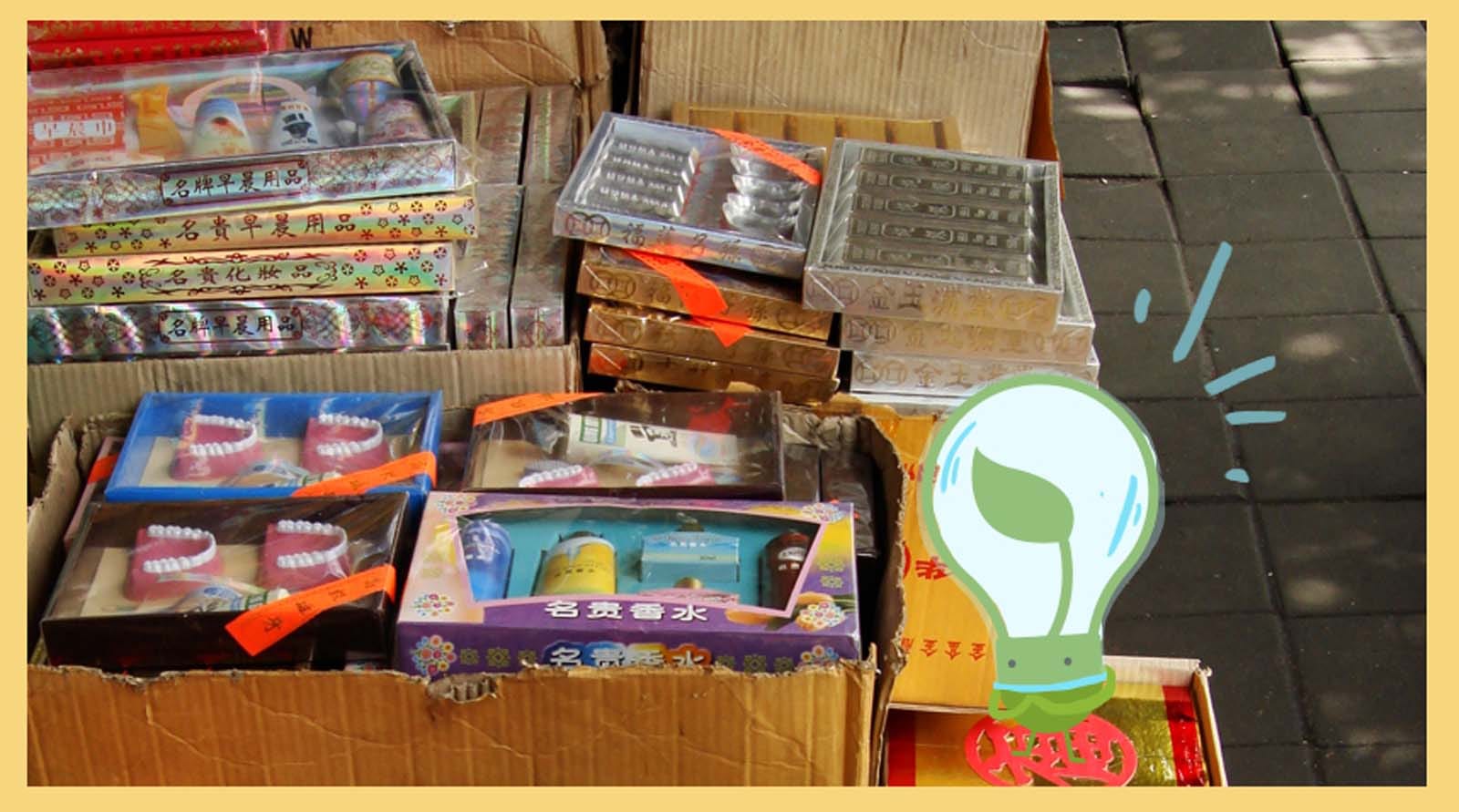Ghost Month Series: This series explores different angles of the 7th Lunar Month, also known as the Ghost Month. Festivals, Cultures, and Religions often mix together in one place, offering space for different interpretations. We, like you, are keen to explore more. Discern on what is helpful to your practice and discard whatever is not.
The following article has been reproduced with permission from Nalanda Institute, Malaysia.
During a funeral ceremony in ancient China, paper-made models of houses, sedan chairs, treasure chests, clothes, daily utensils, and even effigies of servants, were burnt as the cortege was leaving home for burial in the cemetery.
The original meaning of such an act is to show everyone present that all former possessions of the deceased cannot be brought along to the next life.
At one’s death, everything one had ever owned has to be left behind. The burning only emphasizes this message, as it is the most graphical, symbolic, and dramatic way of showing total loss!
There is a Chinese saying that ‘no possessions can be brought along to the next existence; the only thing that follows one is his deeds, or ‘kamma’ ‘ ( 万般带不去,唯有业随身 ).
Furthermore, his relatives and friends only follow the deceased up to the grave, but soon turn to go home, leaving the dead alone in his tomb!
Thus, the burning of cheaply-produced paper models and effigies served as an effective educational tool. Witnessing how fire consumes every ‘former possession’ of the deceased, even an illiterate peasant or young child was able to understand this sense of total relinquishment at death.
Today, this practice is completely misunderstood by the majority of Chinese. Instead of the original meaning, paper-made models have been turned into “paper offerings” – with the mistaken thought that whatever one burns, his departed relatives will obtain in the netherworld!
Hence people nowadays burn paper models of the latest i-Pads, smartphones, LED screens, and “paper money” in inflated sums in order to please the dead.
All these will not help the departed ones at all.
In fact, this misunderstanding will only harm the living by maintaining their ignorance and delusions.
Many people assume that whatever is fancied in life is also fancied in the netherworld.

Instead of burning “paper offerings”, one can perform ‘Dedication of Merits’ (Pāli, ‘Pattidāna ’) to help their departed relatives.
Wise Steps:
- Recognise the possible different reasons why burning paper money became a tradition. Understand that there may be more than one reason. For example read Mothership.sg’s take on it here
- Though one may have more knowledge on Ghost Month, do not seek to aggressively change other’s behaviour (e.g. burning paper money). Instead, start a conversation to understand why others perform certain rituals. At times, being kind is better than being right. Sharing at the right time matters too!
- When walking past burning paper and effigies during this month, reflect on the impermanence of all our possessions


